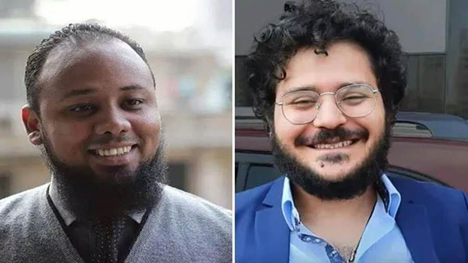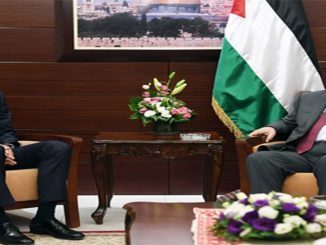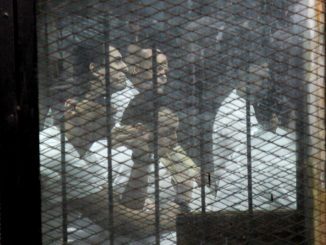
Egypt has pardoned two human rights activists, Patrick Zaki and Mohamed El-Baqer, that had been held in prison, where one of the presidential pardons came just a day after Patrick Zaki was sentenced to three years for writing an article critical of the government.
Two of Egypt’s best-known political prisoners were granted presidential pardons on Wednesday, a day after one of them, Patrick Zaki, a graduate student and human rights advocate, was sentenced to three years in prison over an online article he wrote describing discrimination against Egypt’s Coptic Christian minority.
The student, Patrick Zaki, was pardoned along with Mohamed El-Baqer, a prominent rights lawyer whose release international human rights groups had demanded for years, reported the NYT.
The Biden administration, too, had put at least rhetorical muscle behind the detainees, urging Egypt to release both men and highlighting the prosecution of Mr. El-Baqer in a campaign against politically motivated imprisonment.
The Egyptian authorities had accused both men of “spreading false news,” a charge prosecutors in the country often bring against political dissidents, activists, journalists and even ordinary people who have criticized the government on social media.
Mr. El-Baqer, who has been detained since 2019, was also convicted of belonging to a terrorist group, another accusation routinely leveled against perceived political opponents.
“Baqer and Patrick should not have spent one day in jail for their human rights work,” said Hossam Bahgat, the head of the Egyptian Initiative for Personal Rights, one of the country’s largest rights groups. “We welcome the news of their pardon and call for the immediate release of thousands still detained in Egypt on political grounds.”
There was no official statement on the decision to issue the pardons on Wednesday evening. But over the past year, the government of President Abdel Fattah al-Sisi has sought to prove its commitment to greater political openness, engaging in rare talks with the opposition and releasing more than 1,000 political prisoners.
International relations may have also played a role.
The conviction of Mr. Zaki, who had recently earned his master’s degree from the University of Bologna, had strained relations between Egypt and Italy. And the Italian government, which views Egypt as an important trade customer and a partner in curbing migration to Europe, was quick to claim his release as a diplomatic victory.
“Thanks to the government’s foreign policy, we have made a decisive contribution to free this young student,” Foreign Minister Antonio Tajani said on Twitter.
(The unresolved case of Giulio Regeni, an Italian graduate student whose brutalized body was found in Cairo in 2016, went unmentioned. Egypt has stopped cooperating with investigators on the case.)
The release of Mr. El-Baqer and other high-profile detainees has been a key demand of the Egyptian opposition. Several opposition figures quit the talks with the government in protest after Mr. Zaki was arrested from a courtroom north of Cairo on Tuesday.
But on Wednesday, emboldened by the pardons, they said they would keep pushing for more releases.
One focus of their demands is Alaa Abd El Fattah, a decade ago one of the best-known voices of Egypt’s 2011 Arab Spring revolution and now the best-known person to be targeted in the crackdown that followed. Egypt has refused to budge on his case despite international pressure for his release.
Mr. El-Baqer was arrested when he tried to represent Mr. Abd El Fattah at his interrogation the day the activist was detained. Prosecutors brought new charges to hold him even after his pretrial detention hit the two-year legal limit, though a criminal court recommended he be freed in 2020.
When Mr. El-Baqer was eventually brought to trial, his access to defense lawyers was limited, and he was sentenced in December 2021 to four years in prison.
For much of his time behind bars, his defenders have said, he was held in near-solitary confinement and repeatedly threatened and mistreated.
Mr. Zaki was arrested in February 2020, when he landed at Cairo airport from Italy for a visit with his family.
Both Mr. El-Baqer and Mr. Zaki were sentenced in emergency security courts. Rights groups have criticized Egypt’s use of such courts because their verdicts cannot be appealed, only annulled or modified by the president.



